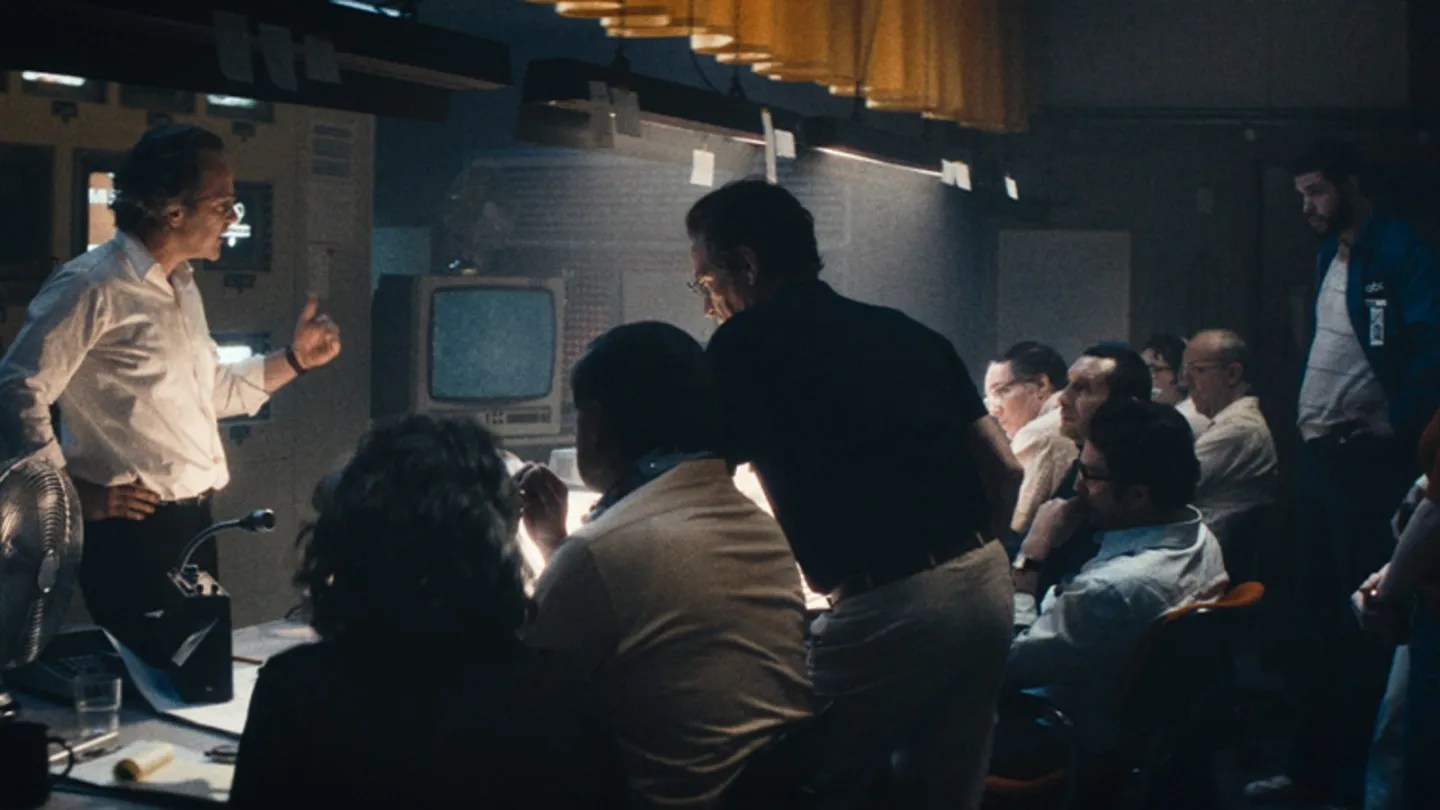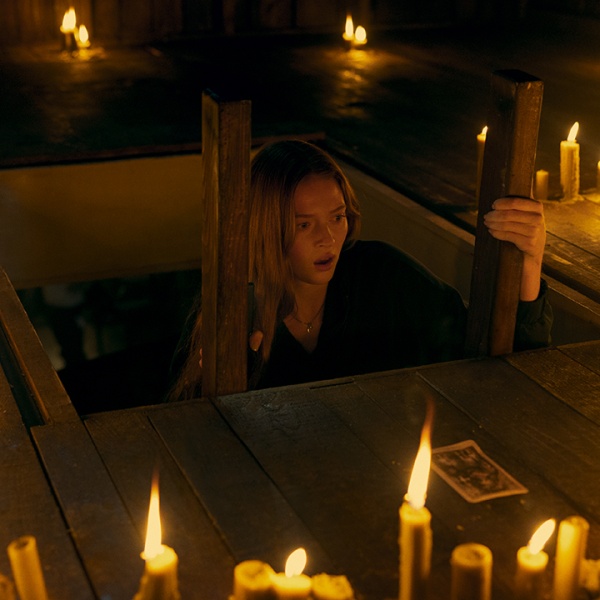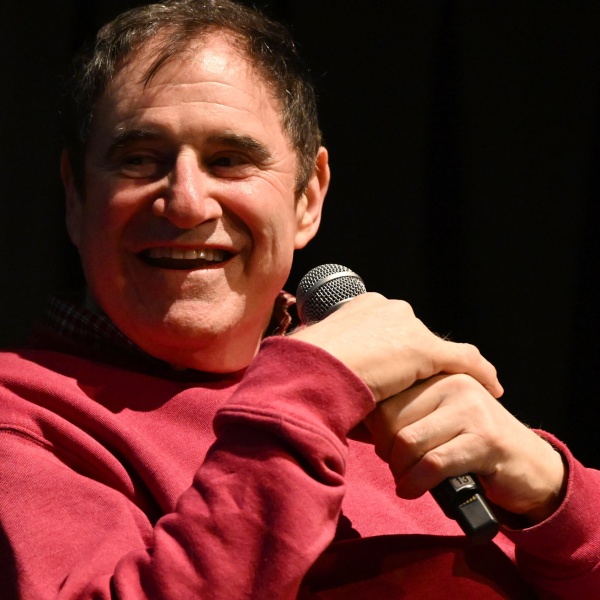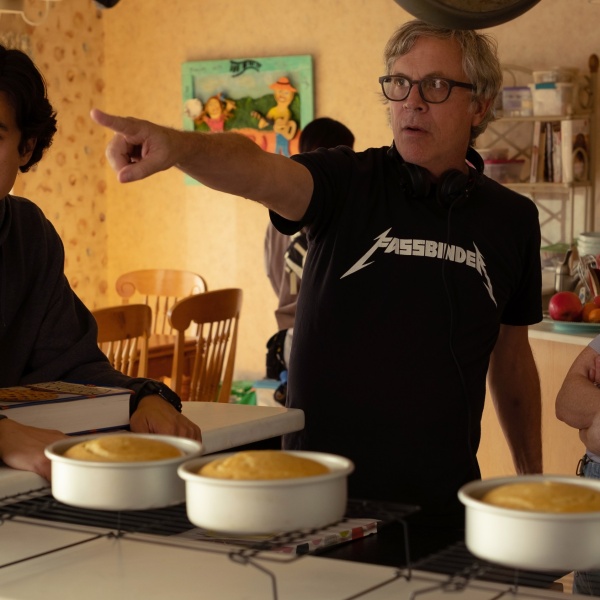A story that doesn’t seem fresh on paper — and one previously explored in Steven Spielberg’s “Munich” — may be a barrier to entry for some audiences. But Swiss director Tim Fehlbaum’s “September 5,” which takes audiences inside the airtight, under-air-conditioned ABC News control room as terrorists commandeered the 1972 Summer Olympics mere yards away, is a gripping, singular depiction that stands on its own merits.
In a tight 94 minutes, Fehlbaum pivots from the mayhem outside and solely toward the handful of sports broadcasters forced to improvise as eight Palestinian militants, known as Black September, took the Israeli Olympic team hostage. All 11 hostages were killed. Though going into this movie with that historical perspective doesn’t impede the tension onscreen — even if “September 5’s” psychological inquiry into the crisis and how it reshaped TV news, and how that very broadcast coverage may have spurred a nightmare to its worst possible horizon, is occasionally pat and less penetrating.
It’s anchored by a compelling and on-point-period performance by indie stalwart John Magaro as Geoff Mason, an upstart producer who suddenly finds himself driving a network’s entire coverage, and way beyond his paygrade. Elsewhere on the scrappy American news team is Peter Sarsgaard as Roone Arledge, who mobilizes his staff once shots are heard as the Munich Olympics kick into their second week. The hostage-taking occurred September 5 and 6, with the games commencing August 26, and at a moment when Germany was still trying to facelift its global image in the lingering aftermath of World War II.
Leonie Benesch, the wonderful actress who commanded the 2024 International Feature Oscar nominee “The Teachers’ Lounge,” plays the only German-speaking crew member, assigned to act as translator but repeatedly pushed aside by her male colleagues. At one point, she’s asked to fetch coffee for the guys, long after she’s already established herself as an essential presence in the room. “September 5,” written by Fehlbaum with German scribe Moritz Binder, only so gently brushes up against the regressive-in-hindsight gender dynamics that were de rigueur in the newsroom and beyond. Yet Marianne (Benesch) never cracks under the forces of a pressure cooker as orders are shouted by a scrambling, male-dominated news team.
Top to bottom, “September 5” is a technically impressive feat, with cinematographer Markus Förderer shooting on what appears to be a celluloid that splices almost seamlessly with the actual 16mm archival footage of Wide World of Sports host Jim McKay and of the hostage crisis itself. The bottom of the fabricated realism only drops out at moments where Förderer’s handheld camera lurchingly whip-zooms into faces on close-up — call it the Adam McKay style of docudrama shooting that defined series like “Succession,” putting us squarely into the characters’ POV while also, if unintentionally, highlighting their artifice because of it.
“September 5” raises an intriguing ethical wrinkle about ABC News’ unintended complicity in what happened, as the Black September terrorists are eventually revealed to, of course, be watching ABC’s very feed from the hotel room where they’ve entrapped the Israeli athletes. Are Geoff and Roone helping or hurting the cause by thrusting their cameras into terror, demanding the next great shot?
As closing title cards reveal, 900 million people watched news coverage of the 1972 hostage situation — which ended in a massacre at Fürstenfeldbruck, the West German NATO airbase, even after fake, German-curated news reports suggested otherwise. Steven Spielberg’s 2005 “Munich,” his drama starring Eric Bana as the German-Jewish Mossad agent assigned to lead the charge to take down the terrorists, plunged into the visceral and moral bloodshed on the ground. “September 5” barely leaves the control room, which becomes a microcosm for if-it-bleeds-it-leads news coverage’s ethical responsibilities against a ticking clock.
At one point, Geoff is all but art-directing the coverage, with one of his colleagues jokingly assenting to him as “Kubrick.” But how far off is that when Geoff is a conductor of where the cameras are placed and where the cuts fall? Magaro, festering under the heat of his own tightly buttoned collar, is a captivating lead, if otherwise an enigma outside who he is in this very room. Fehlbaum invites you to reframe these events, and what knowledge you bring to them, through the lens of the ongoing war in Gaza over issues that feel very much the same: Here, Black September’s cause is to demand the Israeli nation release 200 of its own Palestinian hostages, or else they put a bullet in the head of another Israeli hostage for each hour their ransom isn’t met. Like the movie itself, Fehlbaum’s investigation into the Israeli-Palestinian crisis doesn’t leave this room, and “September 5” is better for it.
Most gripping are the actual news clips captured by ABC — and Emmy-winning at that — which editor Hansjörg Weißbrich collages into the dramatic recreation. An image of a masked terrorist peeking out from the balcony of the hotel is as haunting as anything restaged by this film. Actor Benjamin Walker steps in to play news anchor Peter Jennings, who observed the hostage situation close-up even as German police threatened to detain him and eventually shut down the entire news crew. Snippets of Jennings’ actual voice, along with Jim McKay’s, add to the documentary realism. Which makes the current events already top of mind from frame one all the more chilling.
There’s only so much “September 5” can achieve in one room, in such a (smartly) economical running time. Viewers expecting grandiose statements about the media and how coverage can either skew or contextualize a tragedy — and we’d often never know the differences — will be left empty-handed, or at least with moral homework of their own to do. Instead, “September 5” works most powerfully as a behind-closed-doors, single-room thriller, even as what we see on a wall of monitors is almost too unreal to believe. At one point, the images cut from the Olympic games still going on, its athletes unaware, to the hostage scenario at hand, with Jim McKay commenting, “Now back to the real world, although this seems like the unreal one.” What we were seeing was real, and you can’t make that stuff up, even with all the tricky handheld vérité camerawork in the world that seeks to dramatize it.
Grade: B
“September 5” world premiered at the 2024 Venice Film Festival. It is currently seeking U.S. distribution.





